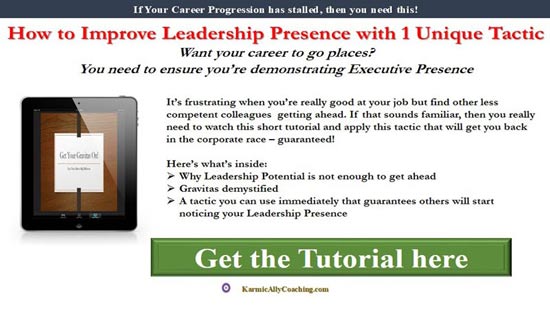This post has already been read 196 times!
Additional Resources mentioned in video
How to Influence People with Authentic Persuasion
The Ultimate Guide you need to develop the quality of Integrity
Networker or Netweaver? How to be different to achieve desired Success
How to Improve Leadership Presence with 1 Unique Tactic
Executive Presence for the Ambitious Woman Professional
Influence by Robert Cialdini (affiliate link)
Prefer to read? Here’s the transcript

To be successful in life or in your career, you’re going to need to get the support of others. And here, we’re not talking about trying to increase your sphere of control or to manipulate others, but to try to positively influence them to help you.
In this video, you’re going to learn techniques to communicate better, improve your relationships and your influence. The promise is strong. Rest assured, I haven’t created these techniques, though I wish I had!
Some of them will sound familiar and come from the famous American psychologist Robert Cialdini.
To begin with, in a human relationship, it is impossible not to influence each other. Because whatever your words or actions, you are sending a message.
Even when you’re not speaking, the other party receives a message from you. So, Influence, like any action, can be positive or negative.
The objective here is to give you the keys to develop your capacities for positive influence. And you can apply these techniques both to positively influence others and to avoid being manipulated, which is when others are trying to influence you negatively.
And where can you use it? You can use it everywhere! You can use it in your private discussions with your spouse, with friends, discussions with your children and especially in business meetings and situations.
Now what I would suggest is develop the art of Persuasion
I’ve covered using persuasive skills in my post How to Influence People with Authentic Persuasion.
Here are 3 reasons to develop that skill.
Firstly, it gives you a competitive edge in both your career and personal life.
You’re going to secure more business, keep your clients engaged, and get better results from your team.
And more importantly, persuasion can propel you forward and bring you closer to your goals.
A point to note is that some people are more persuasive than others and not everyone is born with these skills. But the good news is that you can learn and master the art of persuasion through practice.
So let us look at some ways.
Reciprocity
The first is reciprocity which is also the first of Cialdini’s 6 Principles of Persuasion.
Here, basically we feel obligated to give back what has been offered to us. This is a universal principle. So, when you want to influence others don’t hesitate to provide things of value for free.
Because when you do this, you will provoke the principle of reciprocity, and your audience will feel obligated to give something back to you.
For example, when you go to a grocery store and get a sample of a new dip to taste, the chances are you’re going to buy one. I’ve done it many times. People tend to return a favor and thus the abundance of free samples in marketing.
In another context, let’s look at networking. Here a good networker is going to engage in netweaving, which means when they meet people, they try to help them out.
They look into their network and see, how can I make an introduction to, who can help this person?
And once you’ve helped someone, they’ll be more likely to return the favor when you need it. Point to note is that the best networkers do this with no expectation of return in order to make they’re being sincere.
Point to note: Persuasion isn’t the same as manipulation. The difference lies in the intent behind your desire to influence a person.
When you try to manipulate someone, you’re putting your interests first. The goal is to fool that person into doing something that only benefits you.
Persuasion, on the other hand, is reciprocal. It’s the art of influencing people to do something that will benefit both parties.
The next one is authority
Do everything to prove that you are an expert and authority, and you will influence more people.
We naturally respect authority. We rarely question the experts. You need to come across as an authority in your niche. Here, audience perception is critical.
People will tend to obey authority figures, even if they are asked to perform objectionable acts.
Here I’d like to bring up Cialdini’s citing of the Milgram experiments , where people were asked to deliver lethal electric shocks and the many atrocities committed by soldiers who said they were “just following orders”.
That actually is how authority can affect people negatively. Try to avoid it. Also, you’ll notice that references in writing to people often include their titles and affiliation, so that we’re more likely believe what they say.
They’re also more likely to be persuaded by an authoritative figure. So, when you’re good at what you do, or you possess strong leadership skills, it’s easier to build trust.
Again, now in a business context, let’s say you’re trying to convince someone to do business with you.
It’s one thing to speak about potential earnings in general, but another thing is to come up with case studies, success stories and official statistics.
Talk about your experience in that area and showcase your best projects. That is how you’re going to build trust and also how you’re going to build authority.
Another way is to develop your problem solving skill
Your ability to identify and solve problems strengthens your persuasion skills. So, listen to your team or business partners and try to determine what their pain points are. Next, you come up with a solution to their concerns and use the power of persuasion to entice them to take action.
Remember, you cannot persuade someone who isn’t interested in what you have to offer. That’s why it’s important to identify people’s needs and tailor your message accordingly. In fact, it’s how you’re going to influence them.
Strong communication skills
From that it also follows that you need to have strong communication skills. Because no matter how great your ideas are, you won’t be able to persuade anyone unless you can get your point across succinctly and effectively. That requires strong communication skills.
So, listen to your team and clients. Pay attention to their body language and facial expressions and craft a message that addresses their needs.
Start and end with key points to grab their attention. Be brief, yet specific.
Don’t go into details unless you’re requested to do so. That way you’re going to be focusing on influencing them positively and making them understand that there’s something in it for them too. People love to be heard.
Develop your ability to motivate others
A lot comes down to your ability to motivate others. So, when you’re dealing with others, make sure your message is inspiring and uplifting because this will make your team become engaged and empowered.
Tell them how they benefit from what you have to offer and make your ideas as appealing as possible. But stay ethical and in integrity. Do not manipulate.
Be Likeable
This should not come as a surprise. You need to be likeable. People are much more likely to be influenced and persuaded by those that they like, than those that they don’t.
Given human nature, people are much more likely to like people who pay them compliments and who cooperate with them, than those who don’t.
And, unfortunately, given the positive evidence in relation to certain benefits of diversity, people are also more likely to like people who are similar to them, than those who are not.
Think about it. Don’t you say “Yes” more easily to someone you like?
Like being invited to a Tupperware party and because you like the person, you’re going to buy all the Tupperware stuff even when you don’t need it?
And more importantly, just don’t concentrate on being likeable. Show others that you like them too, because when you do that, again reciprocity kicks in.
Demonstrate Commitment and Consistency
Very important, is to demonstrate commitment and consistency.
People like to be consistent with their identity or sense of self-image. In other words, if I’m a person who thinks of myself as a “healthy” person, then I’m more likely to undertake actions that I consider to be “healthy”.
From a persuasion point of view, you should actually try to convince them to act in minor ways in relation to something, that you think of yourself as that type of a person and then that person is more likely to act in that way again in the future.
Basically, start to find small things to persuade people to do and then move on to larger things from there.
Always bring in their self-image into it so that they start to think that, yes this is something I will like to do.
Keep your message consistent because nobody wants to listen to someone that avoids making commitments. Worse still, fails to deliver on those promises that they did make.
In other words, stay in integrity, honor your commitments. That’s absolutely crucial.
Final Words of Advice
So, the next time when you are trying to influence others to do something you want that will help you, try to do it positively.
Use the 7 techniques that I’ve shared with you.
In fact, try to make them into habits. That way you’re bound to succeed. And if you need more help with your communication skills and you want to demonstrate Gravitas and Executive Presence through your communications, then I suggest you develop your Signature Voice.
This is a small extract from my main course on Executive Presence and it will give you the skills and tools in order to convey your message in a proper manner so that people listen to you, and they give you what you want.
This is Vatsala Shukla from Karmic Ally Coaching signing off. I’ll see you next time with more tips and tricks. Bye for now.






 I adhere to the Certified Coaches Alliance Code of Ethics and Standards. A copy is available on request.
I adhere to the Certified Coaches Alliance Code of Ethics and Standards. A copy is available on request.
 Let's Talk through the Connect Form:
Let's Talk through the Connect Form: